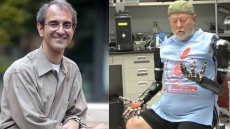When it comes to empathy, you may want to avoid going with your gut as a recent study has revealed that the feeling is more of ‘careful reasoning’ than ‘intuition.’
“Cultivating successful personal and professional relationships requires the ability to accurately infer the feelings of others – that is, to be empathically accurate. Some are better at this than others, a difference that may be explained in part by mode of thought,” said co-author Jennifer Lerner of Harvard University.
She added, “Until now, however, little was known about which mode of thought, intuitive versus systematic, offers better accuracy in perceiving another’s feelings.”
Individuals process information and make decisions in different ways, according to Lerner. Some choose to follow their instincts and go with what feels right to them (i.e., intuitive) while others plan carefully and analyze the information available to them before deciding (i.e., systematic).
Lerner and co-author Christine Ma-Kellams of the University of La Verne conducted four studies, involving over 900 participants, to examine the relationship between the two modes of thought and empathetic accuracy.
The first determined that most people believe that intuition is a better guide than systematic thinking to accurately infer another’s thoughts and feelings. The other three studies found that the opposite is true.

“Importantly, three out of the four studies presented here relied on actual professionals and managers. This sample represents a highly relevant group for which to test empathic accuracy, given the importance of empathic accuracy for a host of workplace outcomes, including negotiations, worker satisfaction and workplace performance,” said Ma-Kellams.
These findings are important because they show that commonly held assumptions about what makes someone a good emotional mind reader may be wrong, said Lerner. “The many settings in which the value of intuition is extolled — for example a job interview may need to be reassessed with a more nuanced perspective.”
The study is published in the Journal of Personality and Social Psychology.




